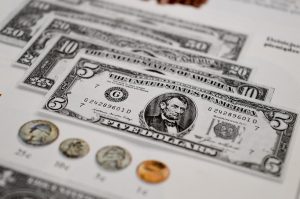The forex market, also known as the foreign exchange market, is the largest financial market in the world, with a daily turnover of over $5 trillion. It is a decentralized market where currencies are traded 24 hours a day, five days a week, across different time zones and locations. The forex market is worth trillions of dollars and plays a crucial role in global trade and financial transactions.
The forex market is a network of buyers and sellers who trade currencies in the form of currency pairs. The most commonly traded currency pairs are the US dollar and the euro, the US dollar and the Japanese yen, the US dollar and the British pound, and the US dollar and the Swiss franc. Other popular currency pairs include the euro and the British pound, the euro and the Japanese yen, and the Australian dollar and the US dollar.
The forex market operates on the principle of supply and demand. The value of a currency is determined by its demand and supply in the market. When there is a high demand for a currency, its value increases, and when there is a low demand, its value decreases. The forex market is highly volatile and influenced by various economic and political factors, including interest rates, inflation, trade policies, geopolitical events, and natural disasters.
The forex market is accessible to anyone with an internet connection and a trading account. Retail traders can trade currencies through online brokers who provide access to the market and offer trading platforms that enable traders to buy and sell currencies. Institutional traders, such as banks, hedge funds, and multinational corporations, also participate in the market, trading in large volumes and influencing the exchange rates.
The forex market provides several advantages to traders, including high liquidity, low transaction costs, and leverage. High liquidity means that traders can easily buy and sell currencies at any time without affecting the exchange rates significantly. Low transaction costs make it affordable for traders to enter and exit the market, and leverage allows traders to control large positions with a small amount of capital.
However, the forex market also carries risks, including high volatility, leverage, and counterparty risk. High volatility can lead to significant losses if traders do not manage their risk properly, while leverage can amplify both gains and losses. Counterparty risk refers to the risk that the other party in a trade may default, leading to losses for the trader.
The forex market has undergone significant changes over the years, with the advent of electronic trading and the rise of algorithmic trading. Electronic trading has made the market more accessible and efficient, allowing traders to execute trades in real-time and access a vast range of financial instruments. Algorithmic trading, also known as automated trading, has enabled traders to use computer algorithms to execute trades based on predefined rules and parameters.
In conclusion, the forex market is a vast and dynamic market worth trillions of dollars, providing opportunities for traders to profit from currency fluctuations. It is a highly liquid and accessible market, but also carries risks that traders need to manage carefully. The forex market plays a crucial role in global trade and finance, and its influence is likely to continue to grow in the future.





